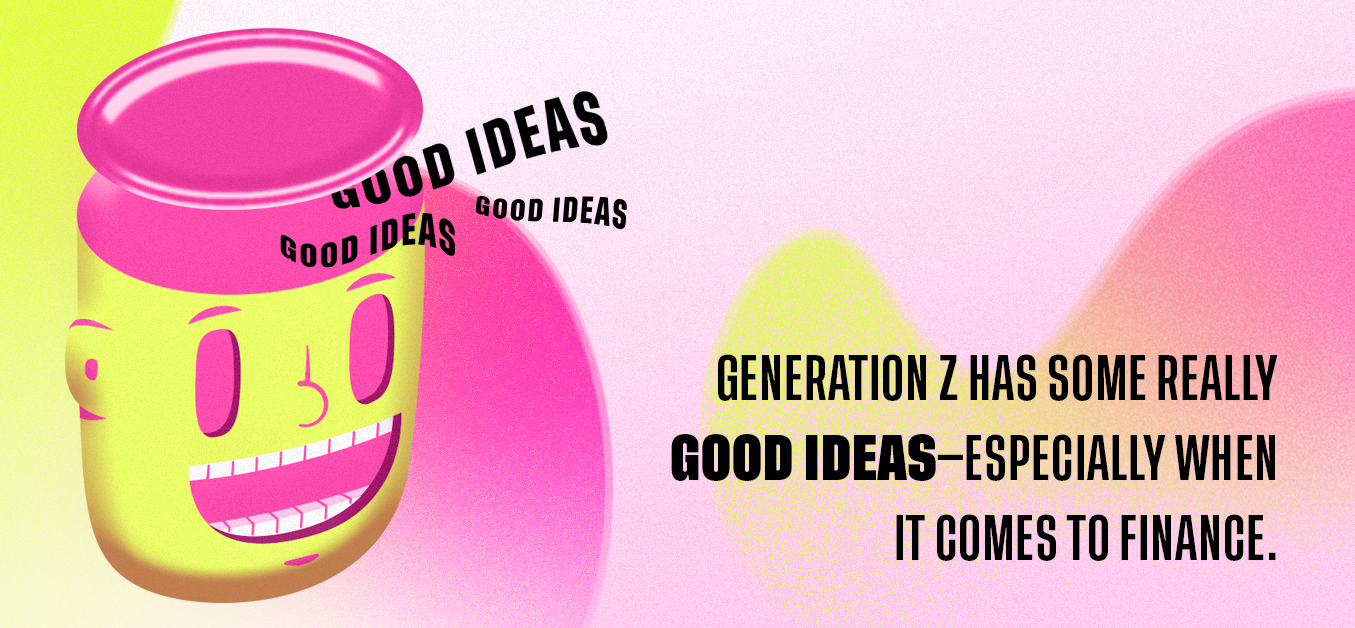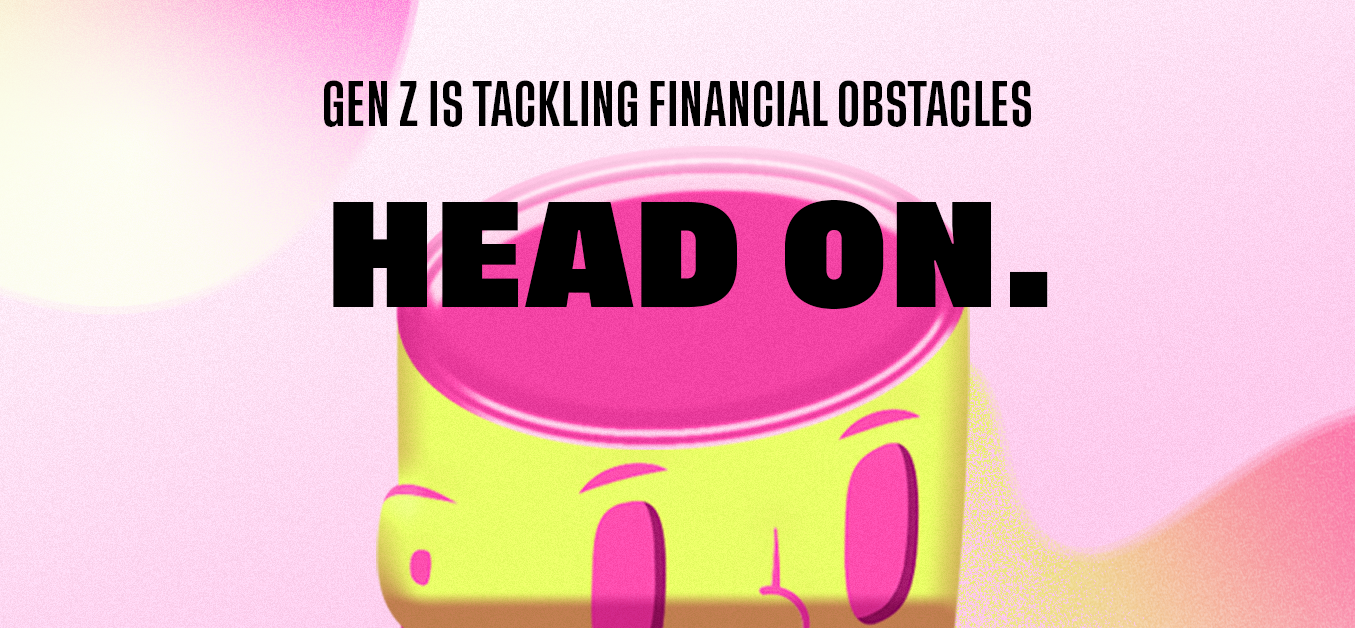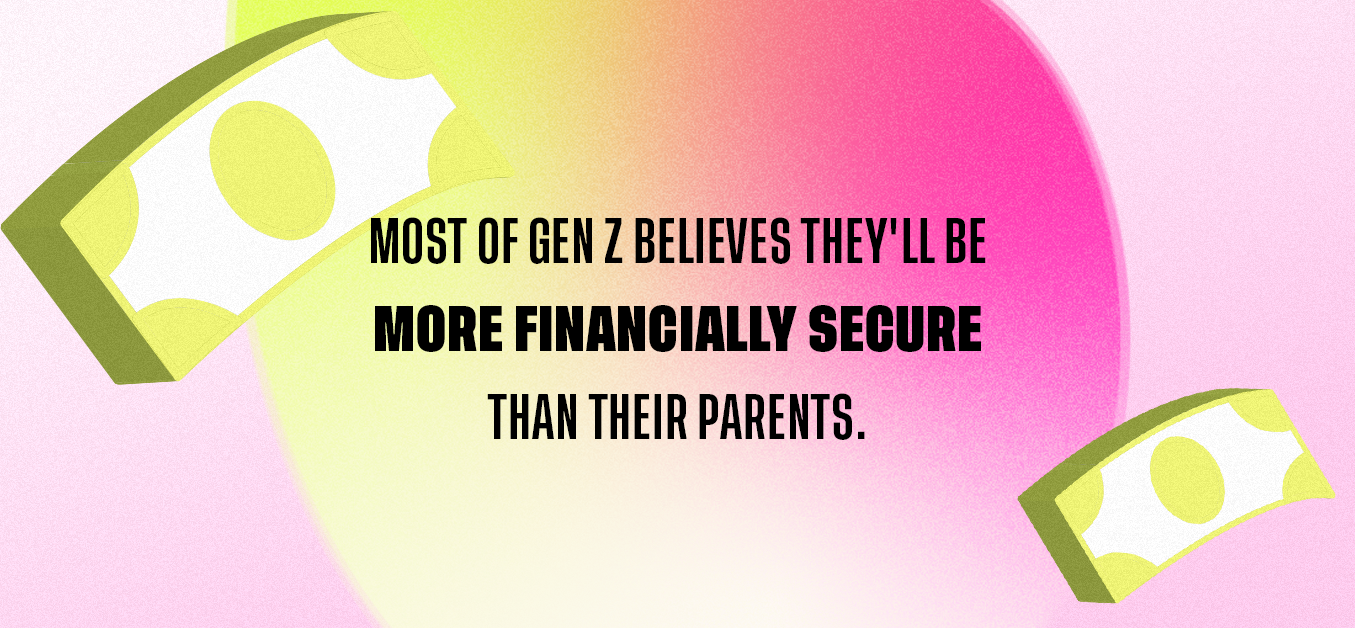Is Gen Z Better at Personal Finance?
Millennials could learn a thing or two from the Zoomer generation
Gen Z has entered the workforce in a big way, and they’re doing finance differently.
Well, they’re doing everything differently. Have you seen TikTok? Have you seen those Bella Swan-inspired T-shirts for sale on Depop? Have you seen (and tried to pronounce) the word “cheugy”? It’s the wild west out here folks, and the youth are to blame.

While Generation Z-dom may confound some Millennials, it’s becoming increasingly clear that folks born between 1995 and 2012 have some really good ideas—especially when it comes to finance.
So what can Boomers and Millennials learn from Gen Z? In a nutshell: get back to basics, and put your money where your mouth is.
Gen Z Financial Goals
The Boomer generation hit their peak earning years in a different financial world than that which Millennials and Gen Zers face today. Homeownership? What’s that?
To combat the many inequities and injustices built into the financial system, Gen Z is wasting no time building up a strong financial foundation.
Values-Based Investing

According to Deloitte’s 2021 Millennial and Gen Z Survey, climate change is the single biggest cause for concern amongst Gen Zers, and the third amongst Millennials. Gen Z is plugged into the reality of our changing climate, and they’re prepared to invest in a way that reflects this concern.
In the last year, 52% of Gen Zers donated to a charity, 49% made decisions about employment based on their ethics, and 40% volunteered with a community organization or nonprofit—outshining Millennials in every category.
Simply put, Gen Z is better at walking the walk than preceding generations. And it’s likely that Gen Z financial wellness will incorporate their strong commitment to personal values. This may look like consistent charitable donations, or investment in socially responsible portfolios.
We think it’s important to put your money where your values are, too. This is why we’ve recently launched our Code Red Mode initiative to help lessen the devastating impacts of climate change. We want to get Canada to net zero carbon emissions and even become a climate positive country, faster. We can do this by planting enough trees to absorb more CO2 than we produce. Every time you use the MogoCard, you'll plant a carbon-sucking tree—for free. The MogoCard is the easiest way to plant a lot of trees, and the more you leverage Mogo, the more trees you’ll plant.Ditch the Debt
According to Lifeworks, Gen Z recognizes how critical it is to get out—and stay out—of debt.
“Generation Z’s habits are healthy, both for managing expected and unexpected expenses. They’re focused on paying down their debts and building a nest egg for a secure future,” writes Lifeworks.
Asked what they were planning on using their tax refund for, 26% of Gen Z respondents indicated they’d be paying down debt; another 26% said they’d be building up their emergency funds. Eliminating debt means freeing up cash for other financial goals, like investing. Building up that emergency fund means staying out of debt if an unexpected expense materializes.
The MogoCard is a reloadable prepaid card, not a credit card, so you won't overspend or rack up debt. In addition to all those MogoCard users who reported saving an average of $201 per month, 91% of MogoCard users said the card gives them better spending control. Spending less helps the planet: 72% of carbon emissions come from household consumption. By planting trees and effortlessly controlling your spending, you can help your wallet and the world.
DIY Finance and Spending Control
Have you noticed the emergence of a new crop of fintech companies, like a cute brilliant organization called Mogo?
We’re building financial tools that help empower the individual. For a long time, people have turned to banks because, well, they were the only option. This gave some people the idea that they couldn't manage their own finances.
But Gen Z doesn’t feel this way. Having grown up in the era of smartphone apps and online banking, Gen Z is more comfortable than any other generation with DIY finance tools.
From using prepaid cards like the MogoCard to amp up their spend control to using app based robo-advisors for their passive investment strategies, Gen Z is embracing the future of finance.
This is a win-win: taking back that control vests more confidence in people and cuts down on banking fees in a huge way.
Naturally, we’re biased. We know how powerful it is to feel totally in control of your own finances. And we’re glad Gen Z is along for the ride!
Prioritizing Financial Wellness

How do they know?
It’s becoming obvious that these digital natives have their heads screwed on straight when it comes to finance. Between building up a personal finance strategy based in realism and responsibility, and investing in the social and environmental causes they believe in, there’s a lot other generations could learn from Zoomers.
The tool we’ve created to bolster this kind of socially and personally responsible financial management is the MogoCard. It can help you save money and help save the planet.
Generation Z is proving to be a force to be reckoned with. It’s time we all learn from our juniors and do money like we mean it.
| GET MY FREE MOGOCARD |
This blog is provided for informational purposes only.
*Trademark of Visa International Service Association and used under licence by Peoples Trust Company. Mogo Visa Platinum Prepaid Card is issued by Peoples Trust Company pursuant to licence by Visa Int. and is subject to Terms and Conditions, visit mogo.ca for full details. Your MogoCard balance is not insured by the Canada Deposit Insurance Corporation (CDIC). MogoCard means the Mogo Visa Platinum Prepaid Card.
1-Based on an online survey of active MogoCard users by Mogo Inc. conducted between July 13, 2021 and July 16, 2021, with 1,446 respondents to a combination of multiple choice and fillable text box questions. 91% of respondents agreed that the MogoCard can help them better control their spending. 66.5% of respondents reported that they were spending less on discretionary spending now that they were using the MogoCard, with respondents reporting that they believed to have an average savings of $201 per month (based on 902 respondents who specified an amount and excluding 60 respondents who did not specify any amount).